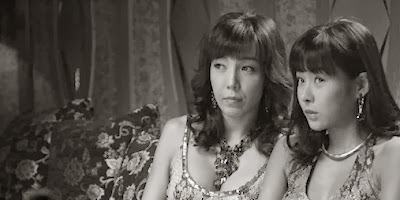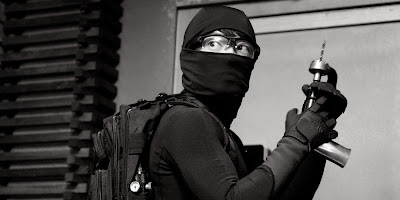
Do I cry too easily? Possibly. Because even a very predictable, conventional movie about a talent show and its hard-luck singing contestants can turn me into a bucket of tears. I don't know why I'm so easily manipulated even when, like with Born to Sing, I can see where it's going right from the very beginning. The forgetful old man (Oh Hyeong-kyeong) with the prickly granddaughter (Kim Hwan-hee) is going to get the love he deserves; the bashful 20-something (Lee Cho-hee) swoony for her adorable co-worker (Yoo Yeon-seok) is going to get kissed, married and laid in that order; and the henpecked has-been (Kim In-kwon) is going to get back to his rock roots and win over a nation and his hairdressing wife (Ryu Hyeon-kyeong). I cried for every story, every success, every cliche. Pretty much every time!
Before the tears, I confess my interest in Born to Sing was fleeting. As directed by Lee Jong-pil, this sitcom of uplift isn't as competent in building back stories or belly laughs. The comic relief -- an off-key mayor (Kim Su-mi), an overaged delivery boy (Kim Jung-gi) and a self-advancing politico (Oh Kwang-rok) are a little too real. What could've been a series of comically quirky characters come across as sad, small-town lives. Not that sad, mind you. I didn't cry for them. They're more depressing in a lightweight, inoffensive kind of way. Like people you meet in life, people who have their own small dreams and self-delusions, people that aren't going to win and who you'll never see again so really what does it matter.
Is there a subversive message here? Are we expected to chase our dreams and not settle for less after watching Born to Sing? Should we crash the karaoke bars and open mics and company off-site talent shows? To be honest, I hardly think so. I think we'd be better off heading to the cineplex to see good movies like this one and, if we're lucky, something better.


























